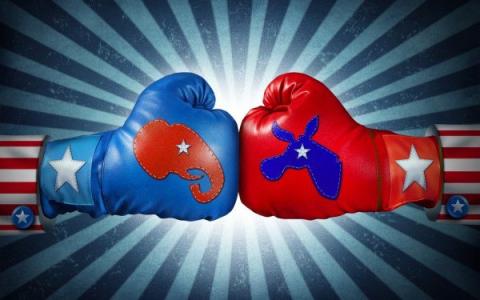The bipartisan agreement to limit the scope of American presidential debates is exemplary of the paltry nature of national political discourse.
As Independence Day approaches, and flags hang from the windows of street corner cafes, suburban homes and billion dollar corporations, it is important to reflect on what it means to be a citizen in this country and what it will take to continue being proud.
An honest look at the issues that deeply effect our nation, and a commitment to public discourse about them, is essential to one’s patriotic health. Our most fundamental problems are not due to decisions we have come to, but the conversations we do not have.
This was exemplified through the lens of our last round of presidential debates, which left many stones unturned. At times the events looked more like both campaign buses had accidentally pulled into the same auditorium and made due by setting their soap boxes up next to each other.
If at any point during the debate you found yourself wondering why your particular issue of concern was not touched on, the specifics of the leaked Memorandum of Understanding between the two campaigns may lend some insight.
Before the debates, the campaigns for Romney and Obama laid out a series of rules and regulations that the Commission on Presidential Debates agreed, by necessity, to sponsor:
“In the event the Commission does not so agree (on any of the rules), the two campaigns jointly reserve the right to determine whether an alternate sponsor is preferable.”
The entirety of the document provides an extensive list of rules and regulations. They extend from the allowance of pen sizes and paper colors, to the methodology of how audience members are selected.
The regulations of most consequence are those that limit topics available for discussion. While the section for the vice presidential and second presidential debates claim to not be limited by topic, the scope of those topics are limited immediately thereafter.
As things stand, candidate pre-approval for debate topics is a necessity. In the years leading up to the next election, perhaps it is worth reconsidering whether or not it should be allowed at all.
A final excerpt from the memorandum, that serves to further exemplify its contradictions, concerns the duties of the moderator:
“In each debate, the moderator shall: Use his or her best efforts to ensure that the questions are reasonably well balanced in all debates and within the designated subject matter areas of the debate in terms of addressing a wide range of issues of major public interest facing the United States and the world."
Does “a wide range of issues of major public interest facing the United States and the world” potentially extend beyond the parameter of topics that the campaigns agreed to discuss?
By forging a pre-determined agreement between both campaigns, and the Commission on Presidential Debates, the American public was robbed of a substantive debate between the two candidates vying to lead them.
If issues such as campaign finance corruption, the war on drugs, environmental policy, and privacy seemed important to you, the campaigns did not agree.
This, of course, is not an incredibly recent development. The Commission on Presidential Debates was created in response the League of Women’s Voters dropping their sponsorship of debates:
"The League of Women Voters is withdrawing sponsorship of the presidential debates...because the demands of the two campaign organizations would perpetrate a fraud on the American voter. It has become clear to us that the candidates' organizations aim to add debates to their list of campaign-trail charades devoid of substance, spontaneity and answers to tough questions. The League has no intention of becoming an accessory to the hoodwinking of the American public."—League President Nancy M. Neuman, LWV October 03, 1988
This Independence Day, as you bite into a Ball Park Frank, and wipe the mustard off your American flag shorts, take a moment to reflect on the importance of the free market of ideas. Presidential debates ought to serve in upholding that tradition.
Photo Credit: Lightspring / Shutterstock.com
